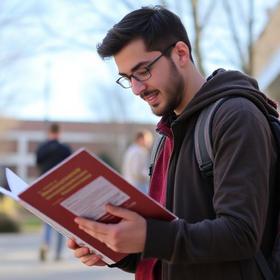School Highlights
Universal Technical Institute-Auto Motorcycle & Marine Mechanics Institute Division-Orlando serves 1,159 students (100% of students are full-time).
Minority enrollment is 91% of the student body (majority Black), which is more than the state average of 67%.
Quick Facts (2025-26)
- Enrollment: 1,159 students
- Acceptance Rate: 10%
- Minority enrollment: 91%
- Source: Integrated Postsecondary Education Data System (IPEDS)
Top Rankings
Universal Technical Institute-Auto Motorcycle & Marine Mechanics Institute Division-Orlando ranks among the top 20% of public schools in Florida for:
Category
Attribute
Selectivity
School Overview
Universal Technical Institute-Auto Motorcycle & Marine Mechanics Institute Division-Orlando
(FL) Community College Avg.
Carnegie Classification
Not applicable, not in Carnegie universe (not accredited or nondegree-granting)
Not applicable, not in Carnegie universe (not accredited or nondegree-granting)
Institution Level
Less than 2 yrs
At least 2 but less than 4 years
Institution Control
Public
Private, for profit
Total Faculty
n/a
188 staff
School Calendar
Student Body
The student population of Universal Technical Institute-Auto Motorcycle & Marine Mechanics Institute Division-Orlando has declined by 65% over five years.
The Universal Technical Institute-Auto Motorcycle & Marine Mechanics Institute Division-Orlando diversity score of 0.69 is less than the state average of 0.75. The school's diversity has grown by 53% over five years.
Total Enrollment
1,159 students
1,236 students
Student-Teacher Ratio
n/a
20:1
# Full-Time Students
1,159 students
588 students
# Part-Time Students
n/a
648 students
# Enrollment Undergraduate
n/a
282 students
# Full-Time Undergraduate Students
1,159 students
587 students
# Full-Time Graduate Students
n/a
295 students
# Part-Time Undergraduate Students
n/a
832 students
# Part-Time Graduate Students
n/a
58 students
Total Dormitory Capacity
n/a
174 students
% American Indian/Alaskan
1%
n/a
% Asian
13%
5%
% Hispanic
n/a
31%
% Black
20%
19%
% White
9%
33%
% Hawaiian
49%
2%
% Two or more races
8%
4%
% Non Resident races
n/a
3%
% Unknown races
n/a
3%
Diversity Score
0.69
0.75
College Completion Rate (Students who graduate in less than 4 years)
59%
63%
College Completion Rate (Students who graduate in 4 years or more than 4 years)
n/a
43%
Average Graduate Earnings (10 Years)
$37,000
$31,500
Tuition and Acceptance Rate
% Students Receiving Some Financial Aid
94%
86%
Median Debt for Graduates
$15,434
$10,500
Median Debt for Dropouts
$5,130
$5,500
Acceptance Rate
10%
94%
SAT Reading
n/a
442
SAT Math
n/a
429
ACT Composite
n/a
18
ACT English
n/a
18
ACT Math
n/a
18
Source: 2024 (or latest year available) Integrated Postsecondary Education Data System (IPEDS)
Frequently Asked Questions
What is the acceptance rate of Universal Technical Institute-Auto Motorcycle & Marine Mechanics Institute Division-Orlando?
The acceptance rate of Universal Technical Institute-Auto Motorcycle & Marine Mechanics Institute Division-Orlando is 10%, which is lower than the state average of 94%. Universal Technical Institute-Auto Motorcycle & Marine Mechanics Institute Division-Orlando's acceptance rate is ranked among the top community colleges in Florida with low acceptance rates.
What is Universal Technical Institute-Auto Motorcycle & Marine Mechanics Institute Division-Orlando's ranking?
Universal Technical Institute-Auto Motorcycle & Marine Mechanics Institute Division-Orlando ranks among the top 20% of community college in Florida for: Lowest acceptance rates.
Recent Articles

How to Transfer from Community College to a Four-Year University in 2025
A step-by-step guide for community college students transferring to a four-year university in 2025 — updated strategies, data and expert insights.

Scholarships for Community College Students 2025
Explore updated scholarship programs, tuition data, and expert strategies for community college students in 2025.

The Rise of Technical and Vocational Training in 2025
Explore the 2025 surge in technical and vocational training—enrollment, policy, costs, and why this path is gaining ground for students and parents.





